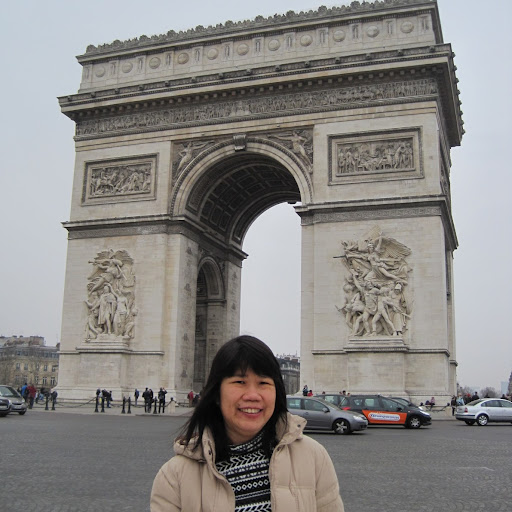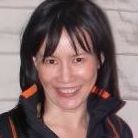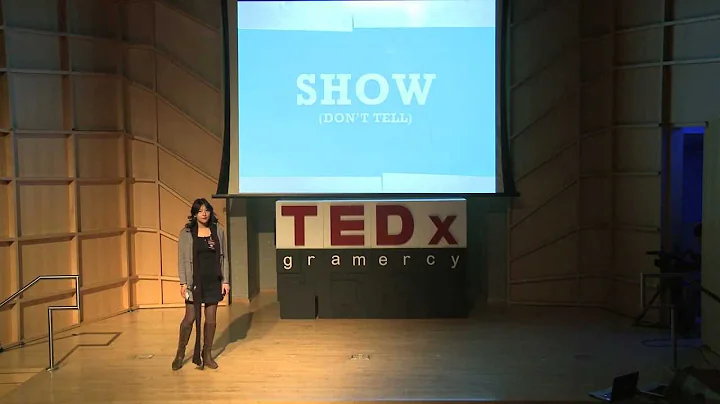Jean Li Hsin Tang
age ~63
from San Jose, CA
- Also known as:
-
- Jean Li-Hsin Tang
- Jean L Tang
- Jean Lihsin Te Tang
- Jean H Tang
- Jean L Pang
- Jin Tang
- Phone and address:
- 380 Ardis Ave, San Jose, CA 95117
Jean Tang Phones & Addresses
- 380 Ardis Ave, San Jose, CA 95117
- 1037 Danbury Dr, San Jose, CA 95129 • 4082533916
- 4365 Manzanita Dr, San Jose, CA 95129 • 4082533916
- Santa Clara, CA
- West Covina, CA
- Sunnyvale, CA
Work
-
Company:Stanford University School Medicine
-
Address:701 Welch Rd, Palo Alto, CA 94304
-
Phones:6507236576
Education
-
School / High School:Stanford University2001
Languages
English
Awards
Healthgrades Honor Roll
Ranks
-
Certificate:Dermatology, 2007
Specialities
Dermatology
Real Estate Brokers

Jean Tang, Arcadia CA
view sourceSpecialties:
Buyer's Agent
Listing Agent
Listing Agent
Work:
re/max premier properties
223 N 1St Ave, Arcadia, CA 91007
6264563815 (Office)
223 N 1St Ave, Arcadia, CA 91007
6264563815 (Office)
Name / Title
Company / Classification
Phones & Addresses
Psychologist
Childrens Hospital Los Angeles
Offices and Clinics of Health Practitioners
Offices and Clinics of Health Practitioners
4650 Sunset Blvd., Los Angeles, CA 90027
Medical Doctor
Stanford Medicine Outpatient
Health/Allied Services · Orthopedics
Health/Allied Services · Orthopedics
450 Broadway St, Redwood City, CA 94063
6507235643
6507235643
Tang, Dr. Jean Y
Dermatologist
Dermatologist
450 Broadway St, Redwood City, CA 94063
6507236316
6507236316
Resumes

Collection And Credit Manager
view sourceLocation:
San Francisco, CA
Industry:
Semiconductors
Work:
Tsmc
Collection and Credit Manager
Collection and Credit Manager

Jean Tang
view source
Jean Tang
view source
Jean Tang
view source
Jean Tang
view sourceLocation:
United States
Vehicle Records
-
Jean Tang
view source -
Address:1037 Danbury Dr, San Jose, CA 95129
-
VIN:4T1BK3EK2AU601561
-
Make:TOYOTA
-
Model:CAMRY
-
Year:2010
Us Patents
-
Methods And Compositions For Determining Risk Of Treatment Toxicity
view source -
US Patent:20040152109, Aug 5, 2004
-
Filed:Oct 14, 2003
-
Appl. No.:10/686322
-
Inventors:Gilbert Chu - Palo Alto CA, US
Virginia Tusher - Belvedere CA, US
Jean Tang - Stanford CA, US
Kerri Rieger - Menlo Park CA, US
Wan-Jen Hong - Palo Alto CA, US
Robert Tibshirani - Stanford CA, US -
International Classification:C12Q001/68
-
US Classification:435/006000
-
Abstract:Methods are provided for determining whether a patient treated with an anti-proliferative agent is susceptible to toxicity. In practicing the subject methods, an expression profile for the transcriptional response to a therapy is obtained from the patient and compared to a reference profile to determine whether the patient is susceptible to toxicity. In addition, reagents and kits thereof that find use in practicing the subject methods are provided.
-
Topical Itraconazole Formulations And Uses Thereof
view source -
US Patent:20130109700, May 2, 2013
-
Filed:Sep 7, 2012
-
Appl. No.:13/607489
-
Inventors:Jean Tang - Mountain View CA, US
Philip A. Beachy - Stanford CA, US
Jayakumar Rajadas - Cupertino CA, US
James Kim - Stanford CA, US -
International Classification:A61K 9/00
-
US Classification:51425407, 544366
-
Abstract:Methods of transdermally delivering a therapeutic amount of a triazole-triazolone compound are provided, e.g. for the prevention or treatment of basal cell carcinoma (BCC) in a subject. A therapeutic level of a triazole-triazolone compound such as itraconazole is delivered transdermally to a subject. Also provided are topical triazole-triazolone compositions that find use in practicing the subject methods.
-
Gene Therapy For Recessive Dystrophic Epidermolysis Bullosa Using Genetically Corrected Autologous Keratinocytes
view source -
US Patent:20190382724, Dec 19, 2019
-
Filed:Jan 3, 2017
-
Appl. No.:16/066253
-
Inventors:- Stanford CA, US
- Washington DC, US
M. Peter Marinkovich - Redwood City CA, US
Jean Tang - Stanford CA, US
Alfred T. Lane - Los Altos CA, US
Paul A. Khavari - Palo Alto CA, US -
International Classification:C12N 5/071
A61K 48/00 -
Abstract:Methods are provided for the cell-based delivery of collagen VII for the treatment of Epidermolysis Bullosa and corneal erosion. The disclosure also provides a composition and a pharmaceutical composition comprises, comprise, or alternatively consist essentially of, or yet further consist of a keratinocyte sheet or a corneal cell sheet.
Medicine Doctors

Dr. Jean Y Tang, Palo Alto CA - MD (Doctor of Medicine)
view sourceSpecialties:
Dermatology
Age:
51
Address:
Stanford University School Medicine
701 Welch Rd, Palo Alto, CA 94304
6507236576 (Phone)
7373 West Ln, Stockton, CA 95210
2094762000 (Phone)
Stanford Medicine Outpatient
450 Broadway St, Redwood City, CA 94063
6507235643 (Phone)
701 Welch Rd, Palo Alto, CA 94304
6507236576 (Phone)
7373 West Ln, Stockton, CA 95210
2094762000 (Phone)
Stanford Medicine Outpatient
450 Broadway St, Redwood City, CA 94063
6507235643 (Phone)
Certifications:
Dermatology, 2007
Awards:
Healthgrades Honor Roll
Languages:
English
Education:
Medical School
Stanford University
Graduated: 2001
Stanford University
Graduated: 2001

Jean Y. Tang
view sourceSpecialties:
Dermatology
Work:
Stanford Health Dermatology Clinic
450 Broadway St Pavillion B, Redwood City, CA 94063
6507236316 (phone), 6507213476 (fax)
450 Broadway St Pavillion B, Redwood City, CA 94063
6507236316 (phone), 6507213476 (fax)
Education:
Medical School
Stanford University School of Medicine
Graduated: 2003
Stanford University School of Medicine
Graduated: 2003
Procedures:
Destruction of Benign/Premalignant Skin Lesions
Skin Surgery
Destruction of Skin Lesions
Skin Tags Removal
Skin Surgery
Destruction of Skin Lesions
Skin Tags Removal
Conditions:
Acne
Dermatitis
Skin Cancer
Alopecia Areata
Atopic Dermatitis
Dermatitis
Skin Cancer
Alopecia Areata
Atopic Dermatitis
Languages:
Chinese
English
English
Description:
Dr. Tang graduated from the Stanford University School of Medicine in 2003. She works in Redwood City, CA and specializes in Dermatology. Dr. Tang is affiliated with Stanford Hospital.
Isbn (Books And Publications)

Taoist Astrology: A Handbook of the Authentic Chinese Tradition
view sourceAuthor
Jean Tang
ISBN #
0892816066

Youtube
News

Genetically Altered Skin Saves A Boy Dying Of A Rare Disease
view source- Experimental treatments are getting under way in the United States and Asia, as well as in Europe. Peter Marinkovich, Jean Tang and colleagues at the Stanford University School of Medicine are using the same approach as De Luca, and they have treated seven children using smaller patches of skin.
- Date: Nov 08, 2017
- Category: Science
- Source: Google

Aspirin Linked to Lower Risk of Deadly Skin Cancer
view source- "These findings suggest that aspirin may have a chemopreventive effect against the development of melanoma," study author Dr. Jean Tang of Stanford University School of Medicine's Cancer Institute and colleagues wrote in their report, published today in the journal Cancer. "Further clinical investig
- Date: Mar 11, 2013
- Category: Health
- Source: Google

Aspirin Vs. Melanoma: Study Suggests Headache Pill Prevents Deadly Skin ...
view source- "We're really excited aspirin could be used as a potential preventive agent for melanoma," Dr. Jean Tang of Stanford University Medical School, the study's senior author, tells Shots. "In terms of cancer prevention, a lower melanoma risk by 20 percent is very large and significant."
- Date: Mar 11, 2013
- Category: Health
- Source: Google

Aspirin may lower deadly skin cancer risk in women
view source- We think our results are very exciting and that they add to the growing body of evidence suggesting that aspirin may have some real anti-tumor and anti-cancer properties, said study co-author Jean Tang, an assistant professor of dermatology at Stanford University.
- Date: Mar 11, 2013
- Source: Google

Daily Aspirin Linked to Lower Risk for Deadly Skin Cancer in Women
view source- "Aspirin could be potentially used to prevent melanoma, but a clinical trial is needed," said lead author Dr. Jean Tang, an assistant professor of dermatology at Stanford University School of Medicine in Palo Alto, Calif.
- Date: Mar 11, 2013
- Category: Health
- Source: Google

Aspirin May Help Prevent Skin Cancer
view source- Other studies have shown aspirin reducing the risk of stomach cancer, colorectal cancer, and this study suggests that maybe it will work for melanoma too, said Dr. Jean Tang of Stanford Universitys School of Medicine.
- Date: Mar 11, 2013
- Category: Health
- Source: Google

Genentech drug to fight common skin cancer gets OK
view source- Dr. Jean Tang, a Stanford dermatologist who specializes in skin cancer, said the disease can be devastating for patients who have been disfigured and are unable to participate fully in life due to multiple surgeries.
- Date: Feb 02, 2012
- Category: Health
- Source: Google

Vitamin D, Calcium Combo May Halve Melanoma Risk in Some Women
view source- SOURCES: Jean Tang, M.D., Ph.D., assistant professor of dermatology, Stanford University School of Medicine, Palo Alto, Calif.; Michael F. Holick, M.D., Ph.D., professor of medicine, physiology and biophysics, Boston University School of Medicine, Boston; June 27, 2011, Journal of Clinical Oncology,
- Date: Jun 28, 2011
- Category: Health
- Source: Google
Plaxo

jean tang
view sourceGoogleplus

Jean Tang
Education:
Singapore Management University - Marketing & Corporate Communications
Tagline:
Lusting for wanderlust. foodie

Jean Tang

Jean Tang

Jean Tang

Jean Tang
About:
Hello.everybody.

Jean Tang

Jean Tang

Jean Tang
Classmates

Jean Tang, Hettinger High...
view source
Watrous High School, Watr...
view sourceGraduates:
william hayward (1984-1986),
Lou Frenner (1996-2000),
Viola Beattie (1945-1949),
Lloyd Ferguson (1971-1975),
Joseph Lore (1988-1992),
Jean Tang (1973-1977)
Lou Frenner (1996-2000),
Viola Beattie (1945-1949),
Lloyd Ferguson (1971-1975),
Joseph Lore (1988-1992),
Jean Tang (1973-1977)

MacDonald Cartier High Sc...
view sourceGraduates:
Lise Mazerolle (1966-1970),
Eric Guillemette (1994-1998),
Stephanie Duchesneau (2000-2004),
Jaime Jean Tang (1987-1991)
Eric Guillemette (1994-1998),
Stephanie Duchesneau (2000-2004),
Jaime Jean Tang (1987-1991)

(Jean Tang)
view source
Jean Garcia Tang
view source
Christine Jean Tang
view source
Jean Tang
view source
Jean Tang
view source
Jean Tang
view source
Jean Tang
view source
Jean Tang
view sourceGet Report for Jean Li Hsin Tang from San Jose, CA, age ~63





